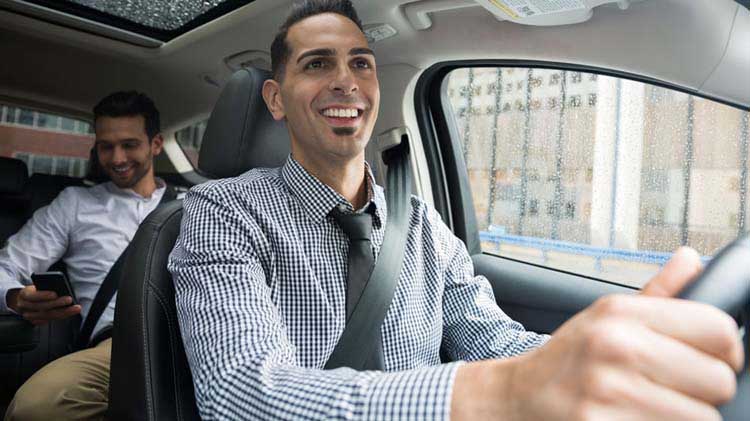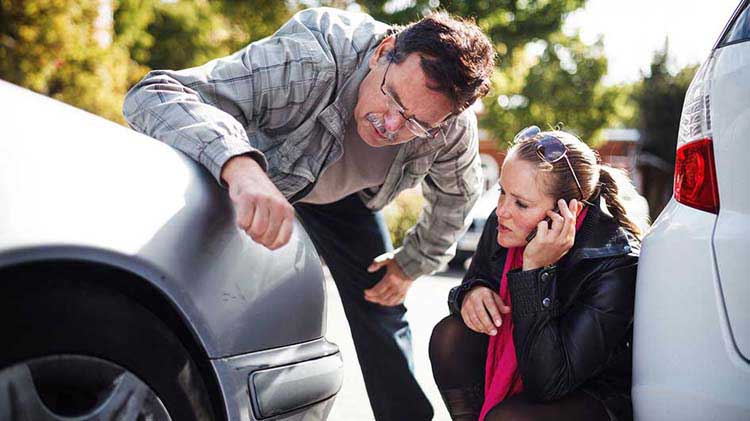Rideshare insurance: What to know
As a rideshare driver, it’s important to understand your rideshare insurance options and how it can help ensure you are protected.
Overview: If you're driving for a rideshare service, your personal car insurance policy might not cover you while you're working. Because standard policies often exclude driving for hire, specialized rideshare insurance is necessary in order to help protect yourself from potentially significant financial risks. Understanding the difference and finding the right coverage for you can help keep you protected while earning income on the road.
Rideshare driving has become a popular way to earn extra income or build a full-time career. Transportation Network Companies (also known as TNCs) offer flexibility and convenience, which allows drivers to set their own schedules. However, many drivers are not fully aware of the unique insurance requirements that come with this role. Driving for TNCs could expose you to risks that aren't covered by personal auto insurance. Rideshare insurance can help bridge the coverage gap and offer coverage during the different phases of ridesharing.
Get an auto insurance quote
Want to protect your car?
How is rideshare insurance different than auto insurance?
Your personal auto insurance is designed for private use, such as commuting, errands or leisure travel. While this generally includes standard coverages (such as liability insurance, collision insurance and comprehensive insurance), it typically excludes commercial activities like "driving for hire."
This means that when you log into a rideshare app (even when waiting for a ride request), your personal auto insurance may not provide coverage. If you're in an accident or encounter unexpected damage while logged into the app, your insurer might not approve your claim.
Rideshare insurance can help fill these gaps between your personal auto policy and the rideshare company's coverage. It is designed specifically for drivers who use their personal vehicles for ridesharing.
Phases of rideshare driving and potential coverage gaps
When logged into your rideshare app, your driving activity is usually divided into different phases. While TNCs often provide coverage throughout the phases, this insurance typically has gaps that may leave drivers exposed at certain times. Rideshare insurance coverage is often different during each phase:
- If the app is off, rideshare insurance does not provide coverage.
- If the app is on and you are available for a match, there's generally a small amount of liability coverage provided.
- Once you're matched with a rider or giving a ride, your TNC may offer higher coverage. However, it often doesn't extend to damages to your car, and policy limits may vary by state and company.
App off
Rideshare app is off
Standard coverage from personal auto insurance policy
No — you will likely only be covered by your personal auto policy.
Phase one
Rideshare app is active, but you haven’t accepted a ride yet
Limited liability coverage from TNC
Yes — TNCs only offer limited liability, which might not extend to your vehicle or sufficiently cover damages.
Phase two & three
Driving to pick up a passenger or have a passenger in your vehicle
Higher liability coverage from TNC
Yes — TNCs offer higher liability, but property damage or medical costs could leave you financially exposed.
Risks of driving without rideshare insurance
Without rideshare insurance, you might be taking risks with significant consequences:
- Denied claims — during Phase one, if you're in an accident, your personal auto insurance will likely not cover repairs, medical expenses or liability costs. In some cases, even the rideshare company’s limited liability policy may not cover certain damages.
- Policy cancellation — if your personal insurance provider discovers that you’ve been engaging in ridesharing without their knowledge, they might cancel your policy. This could make it harder and more expensive for you to obtain insurance from other providers.
- Financial hardship — with denied claims or policy cancellations, you could be required to pay for damage, lawsuits or medical bills out of pocket.
How to choose the right rideshare insurance for you
Finding the right rideshare insurance doesn’t have to be complicated. Following these steps can help ensure you’re protected:
- Talk to your insurance agent — share your rideshare activities when discussing coverage with your agent.
- Ask about rideshare endorsements — many insurance providers now offer specific rideshare endorsements, so ask if such an option is available with your current policy.
- Compare quotes — if your insurer doesn’t offer rideshare policies, consider shopping around for quotes to help ensure you're getting comprehensive protection at a fair price.
- Read your new policy — read through your new policy to fully understand the terms, coverage limits and potential exclusions. Insurers may have different requirements depending on your state or the rideshare service you’re driving for.
Having rideshare insurance can help you focus on driving safely while earning income. To learn more about rideshare insurance options to help fit your needs, contact a State Farm agent today or explore quotes online.
This article was drafted with the assistance of Artificial Intelligence.
The information in this article was obtained from various sources not associated with State Farm® (including State Farm Mutual Automobile Insurance Company and its subsidiaries and affiliates). While we believe it to be reliable and accurate, we do not warrant the accuracy or reliability of the information. State Farm is not responsible for, and does not endorse or approve, either implicitly or explicitly, the content of any third-party sites that might be hyperlinked from this page. The information is not intended to replace manuals, instructions or information provided by a manufacturer or the advice of a qualified professional, or to affect coverage under any applicable insurance policy. These suggestions are not a complete list of every loss control measure. State Farm makes no guarantees of results from use of this information.
This is only a general description of coverages and is not a statement of contract. Details of coverage or limits vary in some states. All coverages are subject to the terms, provisions, exclusions and conditions in the policy itself, and in endorsements.
State Farm Mutual Automobile Insurance Company
State Farm Indemnity Company
Bloomington, IL
State Farm County Mutual Insurance Company of Texas
Richardson, TX




